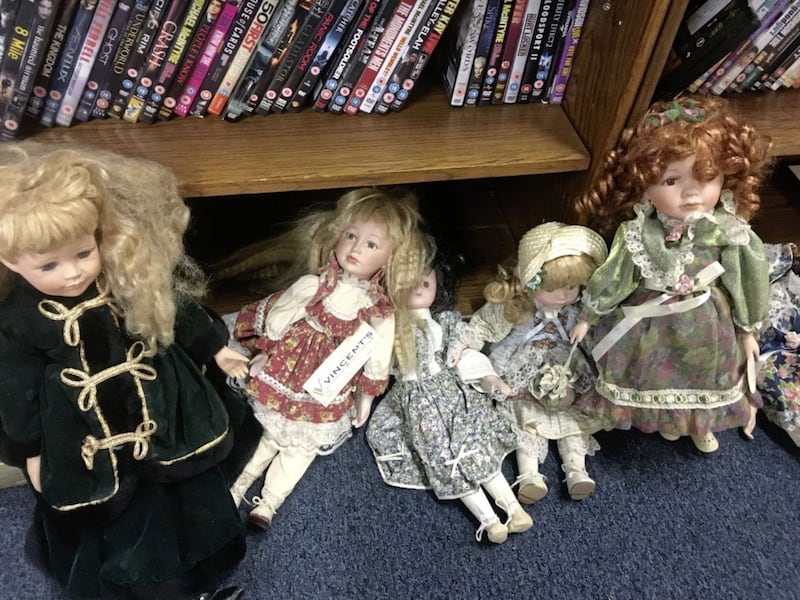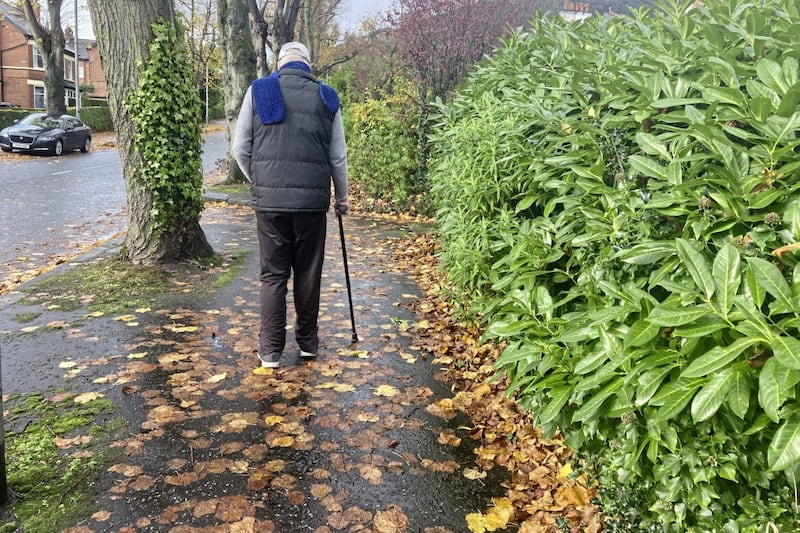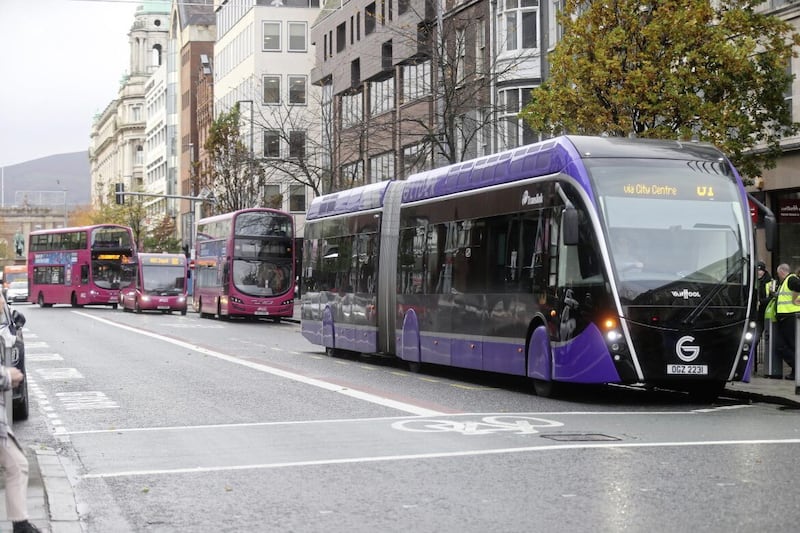"EVERYTHING from a needle to an anchor." That used to be the boast of old fashioned hardware shops, which carried all manner of goods long before shops specialised.
St Vincent de Paul is a bit like that - maybe not a needle nor an anchor, but a lot else.
It's a great relief that charity shops are open again. People depend on them for giving items that are no longer wanted or, more importantly, to buying items that are necessary but the budget is limited.
But what do such shops want? I visited St Vincent de Paul's North Region office and thriving shop on Belfast's Antrim Road, where I met Brendan McKernan, chair of the regional retail committee. It was a fascinating chat.
I wanted to know if they are snowed under with donations now that people are out and about again.
"We had an abundance of clothes offered after the first lockdown - especially difficult as we have to quarantine everything for 72 hours before they go into the shop, so it has built up," says Brendan.
"However, it's a quick turnover when the shop is open and this time we are coping better and we welcome donations."
He explained that during lockdown there was only limited clothes shopping, meaning that most people are holding on to what they have so there is not the same volume of donations coming in.
St Vincent de Paul's whole purpose is to look at what is needed. We visit hospitals, homes and families, we've pensioners' groups and holiday homes-Brendan McKernan
Should clothes be in good repair and washed and ironed? "Clean, yes, but not necessarily ironed," was the reply, as everything is steamed before going onto the rails.
They do not sell damaged clothes, so what happens if a bag contains items that are not fit for the rails?
"Don't worry - we'll take everything and what we can't use, rather than going to landfill and to fulfil our green credentials, we'll sift through and send anything unsuitable to a recycling company," explains Brendan.
"Some material items will go to Third World, rags will be shredded and whereas once they were excellent for car seat padding they are more often today treated and use for sound proofing, for soft areas in indoor adventure playgrounds and mattresses," he says.
"We would appreciate it if people put damaged clothes and bedding into a separate bag and marked it for recycling, which saves us some time."
Although the shop network has only existed for the last 30 years, the St Vincent de Paul charity has been on the go in Ireland since Famine times in the early 1840s.
The first northern conference, as groupings of staff and volunteers are called, was established in Enniskillen in 1846 to support those struggling for food and the basic necessities of life. The same ethos is alive and well today.

SUM UP WHAT YOU DO
"We do what's needed. Our whole purpose is to look at what is needed," says Brendan.
"We visit hospitals, homes and families, we've pensioners' groups and holiday homes."
St Vincent de Paul also run social events, visit prisons and hold educational programmes.
"Most important is our home visitation which has been difficult during isolation," says Brendan.
But not impossible: with video and voice calls they keep in touch with families and those living on their own.
At Christmas, rather than leave people alone and unhappy, some volunteers took stools and went from home to home and talked through the window and left gifts: "There's so much isolation we want to be a good neighbour."
Of course it's not only clothing in the shops: books, bric-a-brac, furniture and soft furnishings are all there to browse through.
Books are interesting and there are thousands of them in the 33 outlets in Northern Ireland.
"Volunteers are experienced in what to look out for, we had a first edition recently which was valued at £400 so we're all watching for a first edition Harry Potter," says Brendan.
A farmer brought in a full tea set of Royal Doulton because, before she died, his wife made him promise the china would go to St Vincent's as he would have no need for it.
It made £200 which was enough for a bed and bedding for a child. Often a young couple will arrive wanting to furnish their first home but without enough money to go shopping in town and city stores.
Here they can find the works - beds and tables, plates and duvet covers, sofas and milk jugs. Even little children can find the perfect doll to bring home and love.
HOW IS PRICING ARRIVED AT?
In city centre shops prices might be higher than out of town in order to cover expenses.
In smaller outlets, prices are appropriate to the area. Again it's all about balance: if someone comes in and buys all round them - maybe a landlord furnishing a number of flats, although that is not what St Vincent's is there for - any money made will be ploughed back into the charity and the vital work they do.
Is there anything they don't want? "Electrical goods, cookers, televisions, shades but not lamps and car seats, for instance, as we have no way of testing," says Brendan.
"We can't take any furniture which does not carry a fire retardant label."
Above all, St. Vincent de Paul is a caring organisation, no matter your beliefs or your background.
Many customers call a couple of times a day to browse and to chat. They consider the charity part of their family and the same goes for those who run the charity - about 2,500 volunteers throughout Ireland, and more are welcome as long as they are over 16.
The Society of St Vincent de Paul is a vast organisation and the Yearbook 2020 has just been published and goes into detail. This can be picked up at any of their shops.
If you wish to talk to someone about your situation, advice on benefits for instance or financial difficulties or to find out where your nearest shop is, phone the regional office at 028 9035 1561. More details at www.svp.ie










